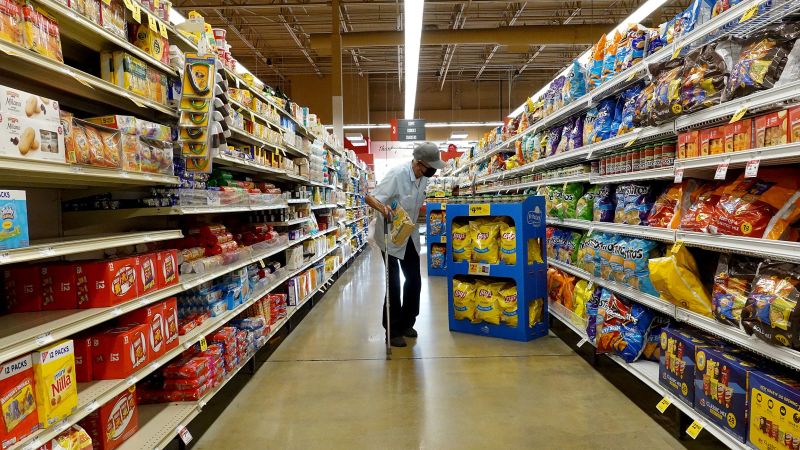Consumer sentiment has dropped to its lowest level in six months, with price increases reaccelerating, according to the University of Michigan survey of consumers. Consumers are also expecting even higher price increases in the year ahead compared to previous months. The gauge, closely monitored by the Biden administration, fell 13% from April to 67.4%, lower than economists’ expectations. However, it is still an improvement from last May when inflation was at 4%.
Inflation, although lower compared to a year ago, has been trending in the wrong direction recently, making a rate cut from the Federal Reserve less likely. The report also showed year-ahead inflation expectations rising to 3.5% from 3.2% in April, further from the central bank’s 2% target. Long-run inflation expectations also increased, to 3.1% from 3.0% in April. Businesses take inflation expectations into account when setting prices for goods and services, so this shift in expectations could lead to higher prices.
The survey indicates that consumers are becoming less optimistic about the economy. Along with concerns about inflation, consumers are worried about rising rates of unemployment, according to Joanne Hsu, the director of the University of Michigan Surveys of Consumers. This decline in consumer sentiment could have implications for the overall economy and government policies moving forward. These findings are important in understanding consumer behavior and economic trends as the country continues to navigate through the challenges of the COVID-19 pandemic.
The Biden administration is closely monitoring consumer sentiment and inflation expectations, as they play a crucial role in shaping economic policies. The latest data shows that consumers are bracing for higher price increases in the coming months, which could impact their spending habits and overall confidence in the economy. The Federal Reserve will also be paying close attention to these numbers as they consider their next moves in response to changing economic conditions.
Overall, the latest University of Michigan survey of consumers paints a concerning picture of consumer sentiment and expectations for the economy. With inflation on the rise and unemployment still a concern, consumers are becoming less optimistic about the future. This could have ripple effects on businesses, government policies, and overall economic growth. As the situation continues to evolve, policymakers will need to closely monitor these trends and adjust their strategies accordingly to support consumer confidence and economic stability. The impact of these factors on inflation and interest rates will be key in shaping future economic outcomes.


